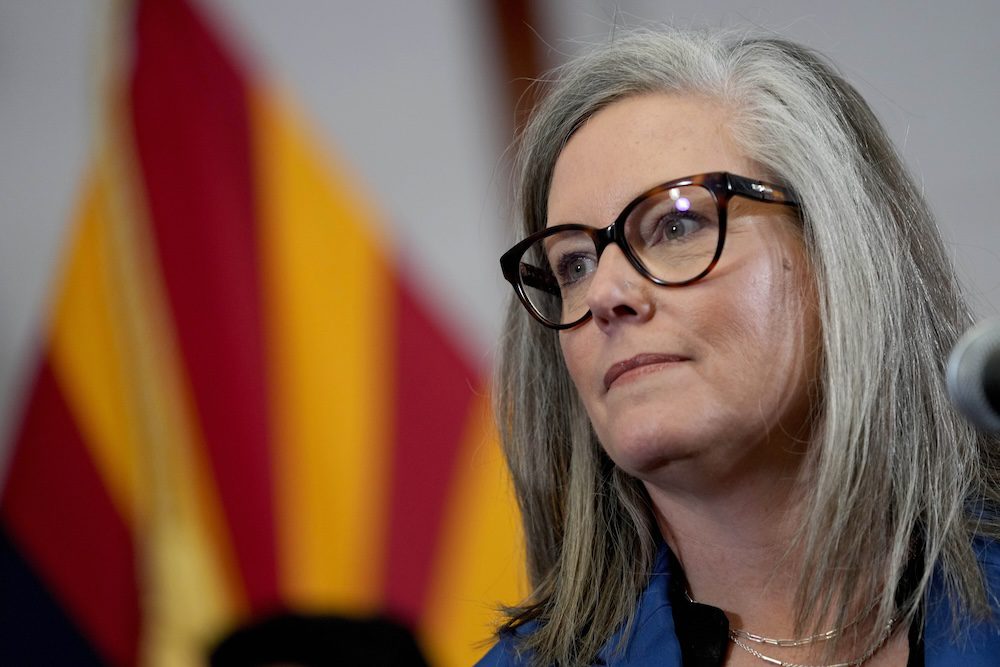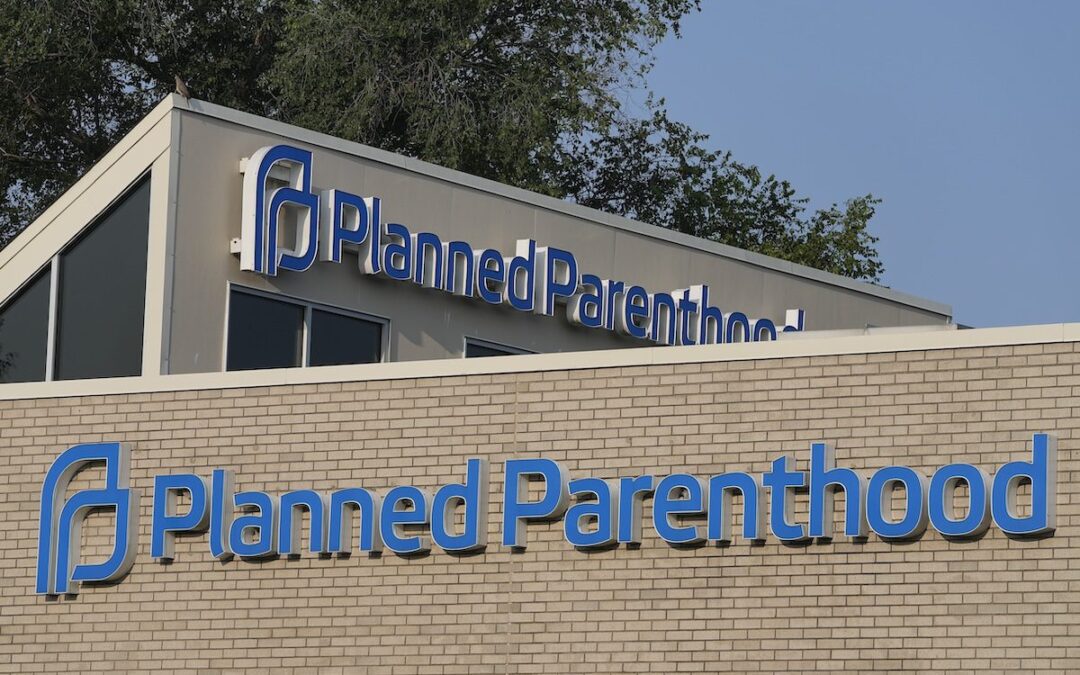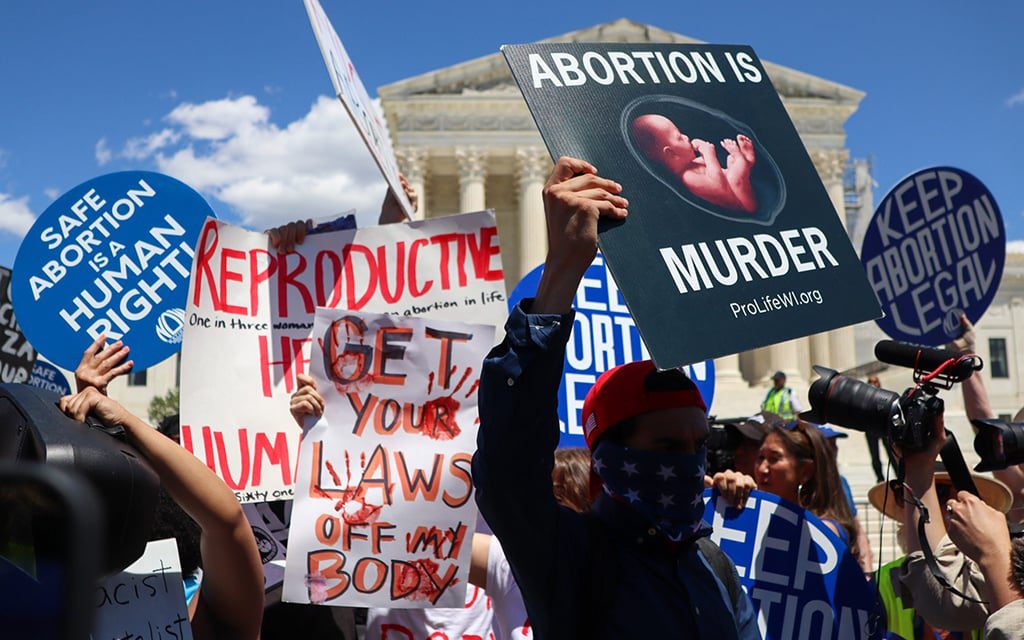
FILE - Arizona Gov. Katie Hobbs, speaks prior to signing the repeal of the Civil War-era near-total abortion ban, Thursday, May 2, 2024, at the Capitol in Phoenix. Arizona lawmakers approved a bipartisan budget deal Saturday, June 15, that erases a $1.4 billion shortfall by curbing spending on higher education, trimming funding for state agencies and raiding a host of special funds. (AP Photo/Matt York, File)
Making childbirth safer and making rural reproductive health care better are the goals of a new bill in Arizona, which Gov. Katie Hobbs signed into law on May 13.
House Bill 2332 will require the Arizona Department of Heath Services to develop and distribute educational materials on postpartum depression to health care providers and patients.
It will also create an OB-GYN advisory committee for rural Arizona.
Women in rural Arizona communities often have to drive hours to receive the reproductive health care they need. As of 2020, both La Paz and Greenlee counties had zero OB-GYNs or certified nurse midwives.
Apache and Graham counties have fewer than one OB-GYN per 10,000 women.
The goal of the advisory committee is to develop recommendations to enhance prenatal, labor and delivery, maternal health and postpartum care services in rural hospitals and communities, and deliver those recommendations to the governor and Arizona Legislature by the end of 2026.
HB 2332 was introduced by Arizona Rep. Julie Willoughby (R-Chandler).
READ MORE: HCR 2025 would require 60% of AZ voters to change the state constitution
According to federal research, roughly 1 in 7 Arizona women reported symptoms of postpartum depression. Rates can be even higher among certain populations, such as Mexican women in Maricopa County, where studies have found postpartum depression in up to 58% of new mothers.
And approximately 50% of postpartum depression cases go undiagnosed due to the patient’s unwillingness to share symptoms, or otherwise not knowing what symptoms to look for.
HB 2332 will aim to reduce that number by helping keep patients informed.
“I want to thank the bill’s sponsor for putting forth this legislation,” said Arizona Rep. Anna Abeyita (D-Glendale).
“I have a little one. She’s 2 years old, and I also have underlying mental health issues that I recently learned [about,]” she said. “I personally feel very grateful for this legislation, and I know other mothers will be as well.”
The bill passed in the Arizona House of Representatives, with 13 Republicans voting against it. It passed the Arizona Senate with all but three Republicans voting in favor.
Support Our Cause
Thank you for taking the time to read our work. Before you go, we hope you'll consider supporting our values-driven journalism, which has always strived to make clear what's really at stake for Arizonans and our future.
Since day one, our goal here at The Copper Courier has always been to empower people across the state with fact-based news and information. We believe that when people are armed with knowledge about what's happening in their local, state, and federal governments—including who is working on their behalf and who is actively trying to block efforts aimed at improving the daily lives of Arizona families—they will be inspired to become civically engaged.


Explained: Why AZ doctors are fighting these abortion rules in court right now
You may remember that last November, Arizona voters approved Prop 139 to protect abortion rights in the state constitution. But a year later,...

‘Crisis pregnancy centers’ in Arizona are deceiving pregnant women
When someone goes to the doctor’s office to get a diagnosis or treatment, they expect to get accurate and expert information from a licensed...

Trump’s VA abortion ban is a step backwards for Arizona veterans
In August, the US Department of Veterans Affairs (VA) announced that it would no longer allow veterans to access abortion care or counseling through...

Travel time rose post-Dobbs in states limiting abortion, with AZ seeing surge from Texas
WASHINGTON – In 14 states that made abortion all but impossible to obtain after the Supreme Court overturned Roe v. Wade, women seeking to end a...





